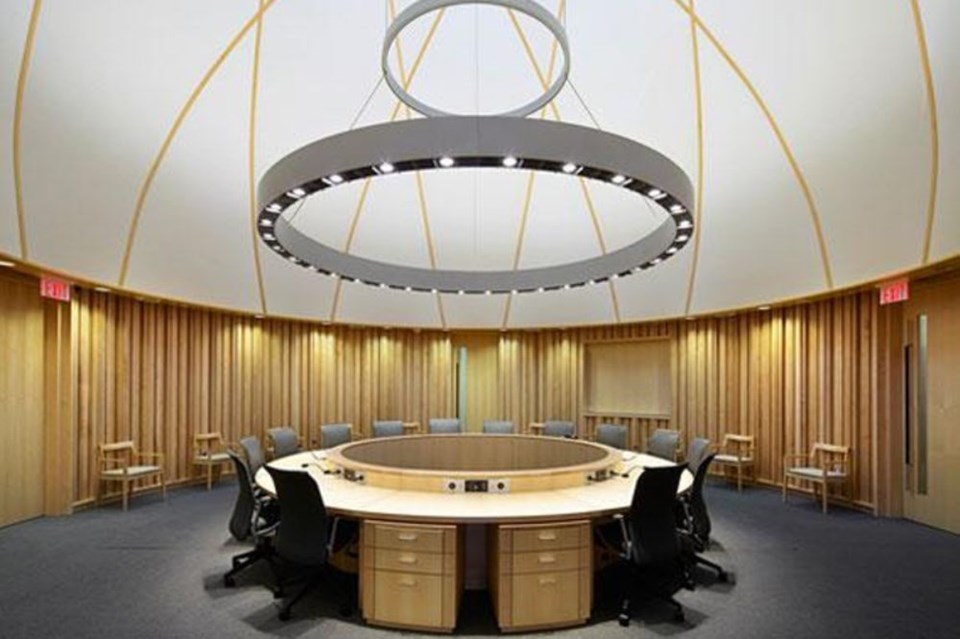Conversations have begun to bring an Aboriginal Peoples' Court to Thunder Bay.
The Thunder Bay Indian Friendship Centre is approaching police and legal organizations in hopes of developing a holistic and culturally appropriate environment in which First Nations people can access the justice system.
"I believe an Aboriginal Peoples' Court in Thunder Bay would be of singificant benefit to the Aboriginal population in Thunder Bay, including remote Frist Nations," said friendship centre executive director, Charlene Baglien.
When the Thunder Bay Courthouse was built in 2013, it included a room designed for just such a purpose but no process was put in place to promote its use.
Departing from the Anglo-Canadian appearance of a courtroom where an elevated judge faces a pewed audience, the room is fitted with a round table. Voices that have limited place in today's courtrooms such as the families of the accused or victim could play a traditional indigenous role in trials and sentencing. Baglien believes diversion programs would also benefit from the cultural atmosphere.
"Right now, delivered after hours, our staff attend courthouse with volunteers from the community who sit in a circle in the conference room and listen to a person's story and then the healing and wellness plan is written up and agreed upon, the individual follows through, complete with the healing and wellness plan," Baglien said. "Providing they do so, the charges are dropped."
Justice for Aboriginal people has been evolving differently since 1999, when the Supreme Court of Canada upheld its Gladue decision, which allows for courts to consider the background and personal impacts of colonialism for Aboriginal defendants during sentencing.
Nishnawbe-Aski Legal Services now employs three Gladue workers and a case is building to prove the demand exists to expand use of the chamber.
"We must work in harmony with our judicial partners and community to make these changes so that we can include our Aboriginal culture and values in the system as we embrace together in the development of this court," said NAN Legal Services executive director, Celina Reitberger."
The friendship centre has hired Frances Wesley as its urban judicial partnership coordinator. She will be establishing the framework for an Aboriginal Peoples' Court, bulding partnerships and leading workshops on Gladue sentencing and cross-cultural sensitivity.
Defence lawyer Neil McCartney has heard elders in remote communities talk about traditional forms of justice and the alienation that particularly young Aboriginal people face in courts that visit their communities as seldomly as once per season. He believes making the process culturally relevant is necessary for the judicial system to have credibility in Northern Ontario's First Nations.
"In some ways, it might be seen as a more restorative type of approach used in these communities, maybe since time immemorial," he said.
"It's enormously valuable in terms of de-mystifying the process for the community and making the community feel like they're part of the process, which of course, they have to be. The effect of our Anglo-Canadian court flying in once every four months is going to be a fallacy unless we get the communities on board with what's being done."
